1 to
10
of 19

Working Paper
Women’s control over income and household spending decisions: A rapid review
2025Eissler, Sarah; Bryan, Elizabeth
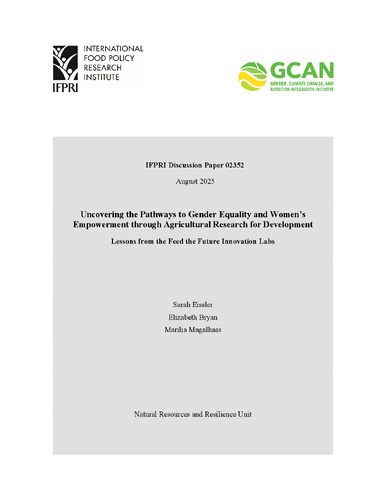
Working Paper
Uncovering the pathways to gender equality and women’s empowerment through agricultural research for development: Lessons from the Feed the Future innovation labs
2025Eissler, Sarah; Bryan, Elizabeth; Magalhaes, Marilia

Working Paper
Understanding the policy landscape for climate action in Kenya: Potential for integration of gender, nutrition, and improved impact monitoring
2025Magalhaes, Marilia; Bryan, Elizabeth; Ringler, Claudia; Nyukuri, Elvin; Choudhury, Zahid ul Arifin
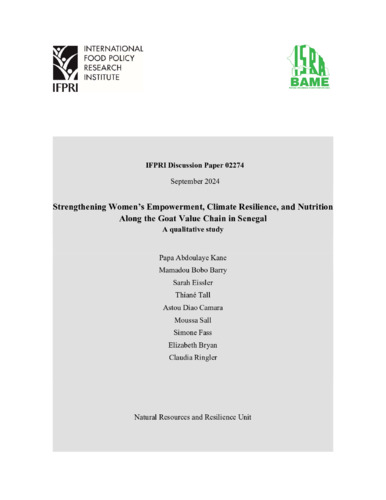
Working Paper
Strengthening women’s empowerment, climate resilience, and nutrition along the goat value chain in Senegal: A qualitative study
2024Kane, Papa Abdoulaye; Barry, Mamadou Bobo; Eissler, Sarah; Tall, Thiané; Camara, Astou Diao; Sall, Moussa; Fass, Simone; Bryan, Elizabeth; Ringler, Claudia
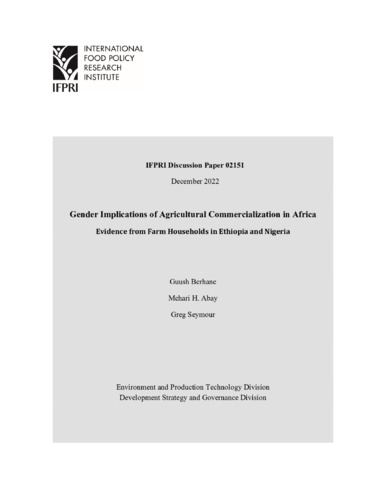
Working Paper
Gender implications of agricultural commercialization in Africa: Evidence from farm households in Ethiopia and Nigeria
2022Berhane, Guush; Abay, Mehari Hiluf; Seymour, Greg
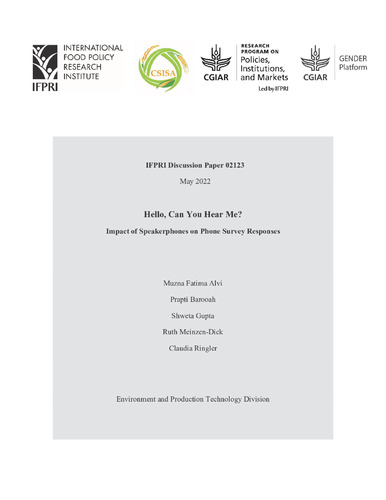
Working Paper
Hello, can you hear me? Impact of speakerphones on phone survey responses
2022Alvi, Muzna; Barooah, Prapti; Gupta, Shweta; Meinzen-Dick, Ruth S.; Ringler, Claudia
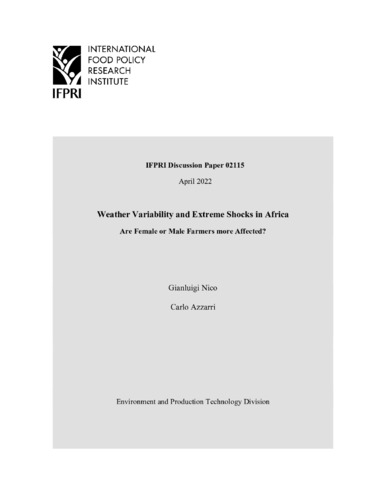
Working Paper
Weather variability and extreme shocks in Africa: Are female or male farmers more affected?
2022Nico, Gianluigi; Azzarri, Carlo
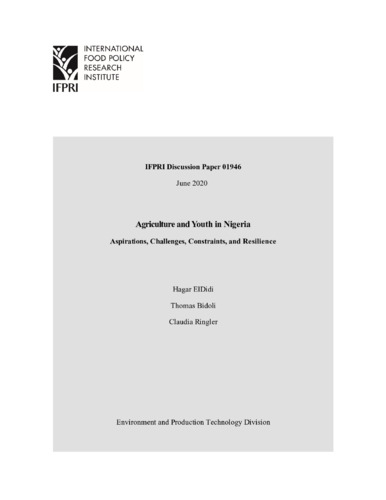
Working Paper
Agriculture and youth in Nigeria: Aspirations, challenges, constraints, and resilience
2020ElDidi, Hagar; Bidoli, Thomas; Ringler, Claudia
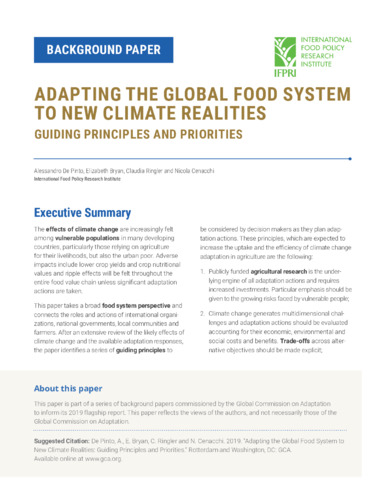
Working Paper
Adapting the global food system to new climate realities: Guiding principles and priorities
2019De Pinto, Alessandro; Bryan, Elizabeth; Ringler, Claudia; Cenacchi, Nicola
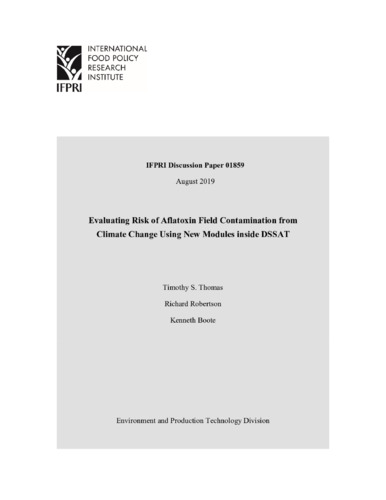
Working Paper
Evaluating risk of aflatoxin field contamination from climate change using new modules inside DSSAT
2019Thomas, Timothy S.; Robertson, Richard D.; Boote, Kenneth J.
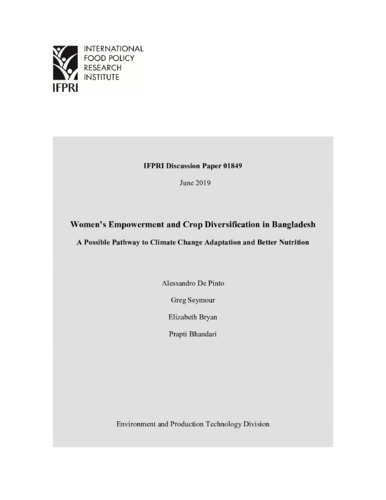
Working Paper
Women’s empowerment and crop diversification in Bangladesh: A possible pathway to climate change adaptation and better nutrition
2019De Pinto, Alessandro; Seymour, Greg; Bryan, Elizabeth; Bhandary, Prapti
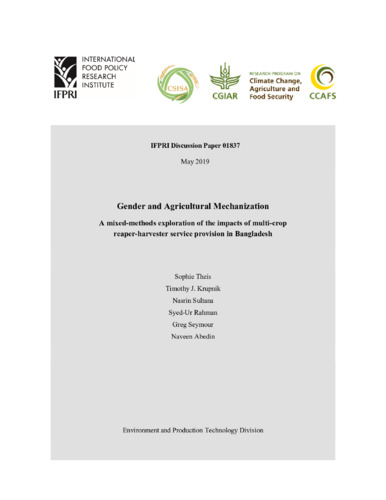
Working Paper
Gender and agricultural mechanization: A mixed-methods exploration of the impacts of multi-crop reaper-harvester service provision in Bangladesh
2019Theis, Sophie; Krupnik, Timothy J.; Sultana, Nasrin; Rahman, Syed-Ur; Seymour, Greg; Abedin, Naveen
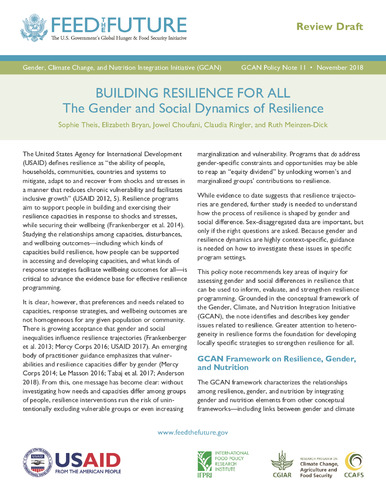
Working Paper
Building resilience for all: The gender and social dynamics of resilience
2018Theis, Sophie; Bryan, Elizabeth; Choufani, Jowel; Ringler, Claudia; Meinzen-Dick, Ruth S.
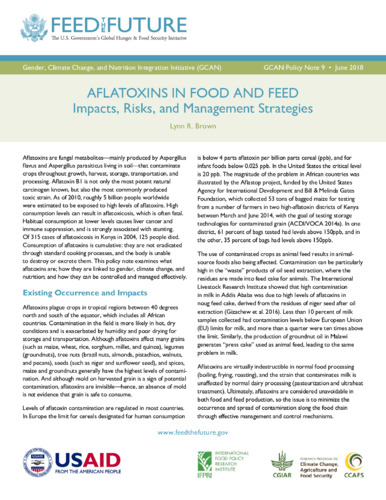
Working Paper
Aflatoxins in food and feed: Impacts risks, and management strategies
2018Brown, Lynn R.
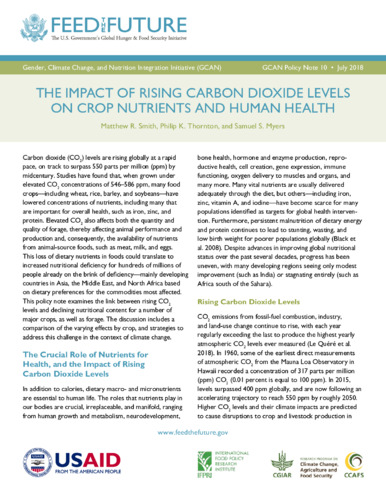
Working Paper
The impact of rising carbon dioxide levels on crop nutrients and human health
2018Smith, Matthew R.; Thornton, Philip K.; Myers, Samuel S.
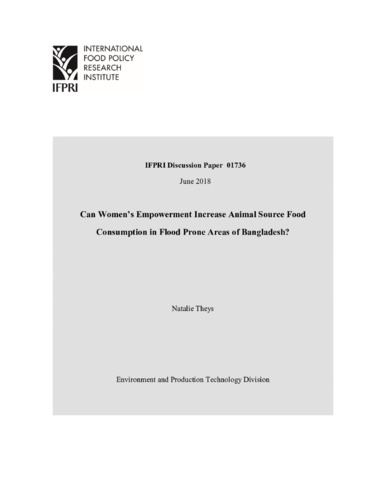
Working Paper
Can women’s empowerment increase animal source food consumption in flood prone areas of Bangladesh?
2018Theys, Natalie
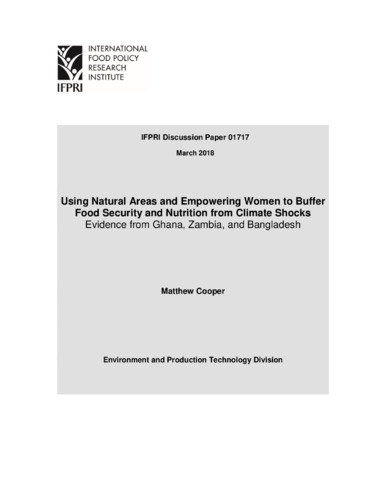
Working Paper
Using natural areas and empowering women to buffer food security and nutrition from climate shocks: Evidence from Ghana, Zambia, and Bangladesh
2018Cooper, Matthew
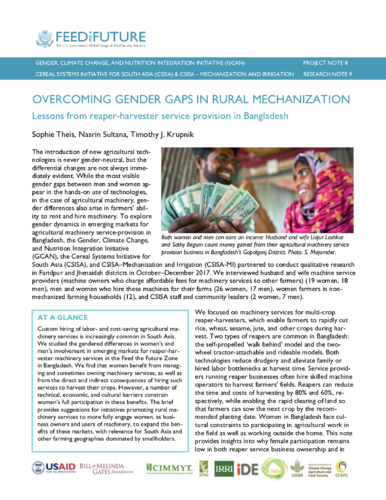
Working Paper
Overcoming gender gaps in rural mechanization: Lessons from reaper-harvester service provision in Bangladesh
2018Theis, Sophie; Sultana, Nasrin; Krupnik, Timothy J.; International Maize and Wheat Improvement Center; International Rice Research Institute
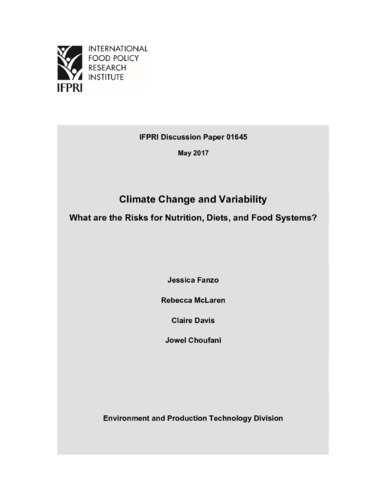
Working Paper
Climate change and variability: What are the risks for nutrition, diets, and food systems?
2017Fanzo, Jessica; McLaren, Rebecca; Davis, Claire; Choufani, Jowel
1 to
10
of 19

